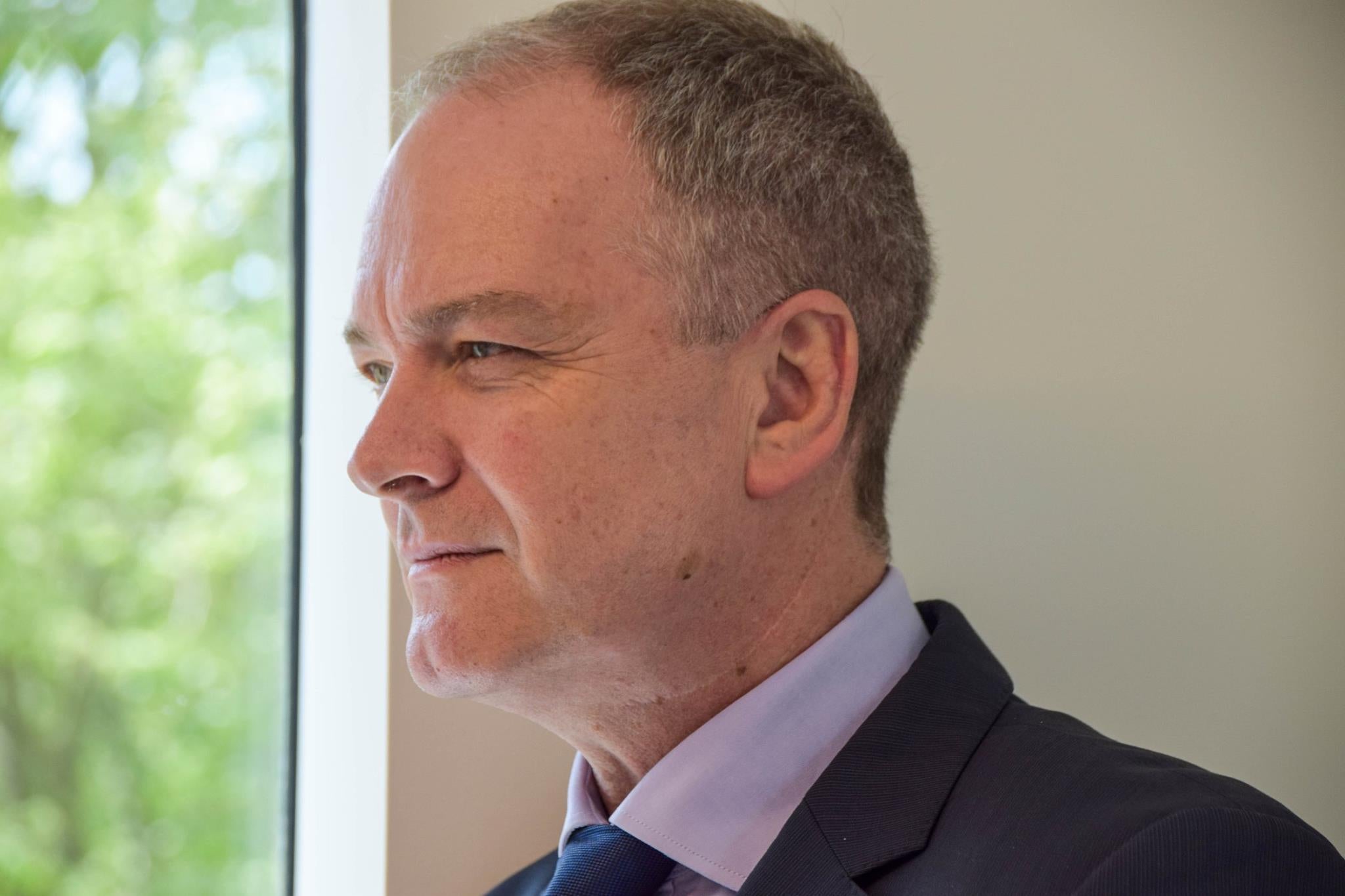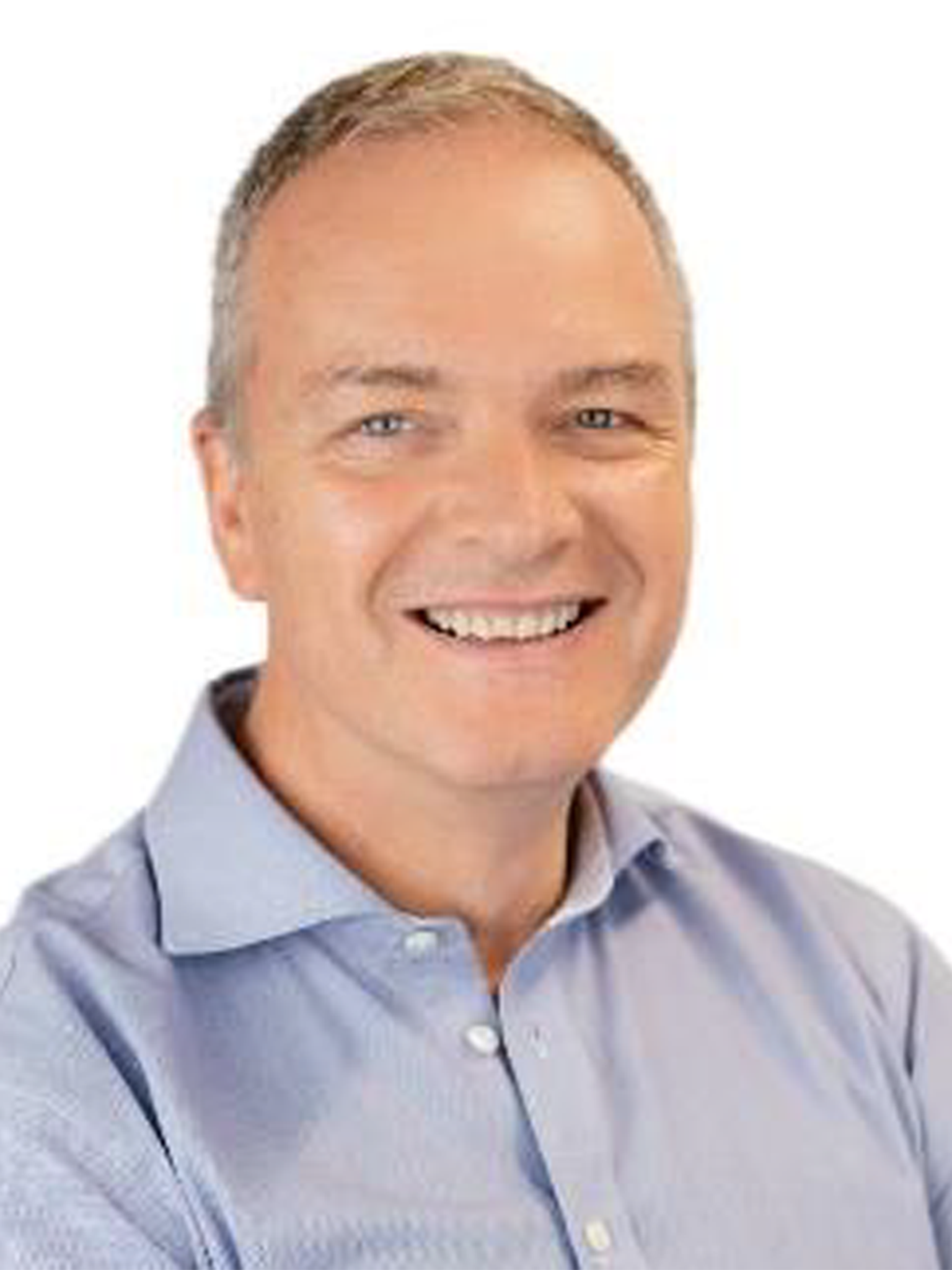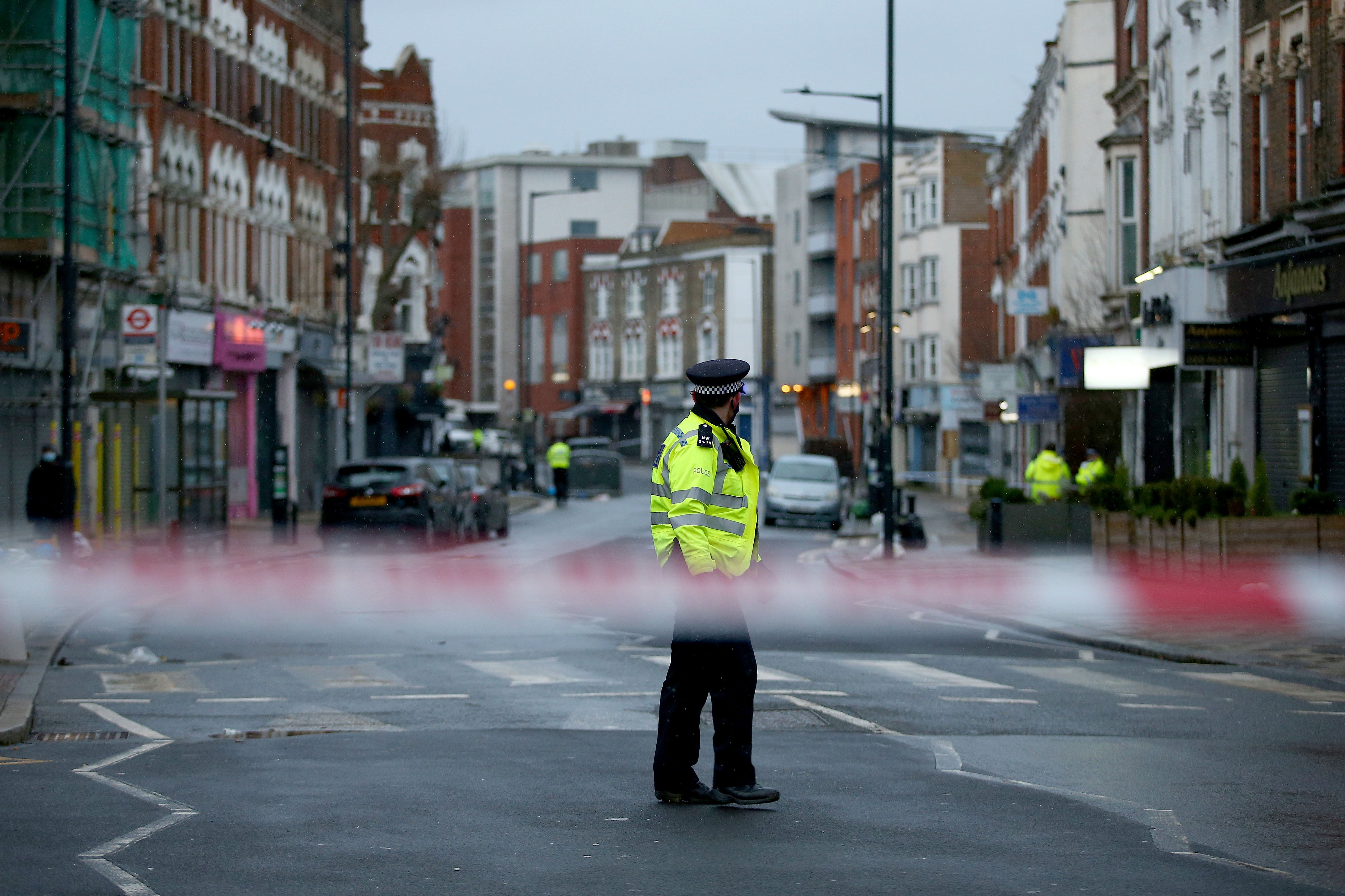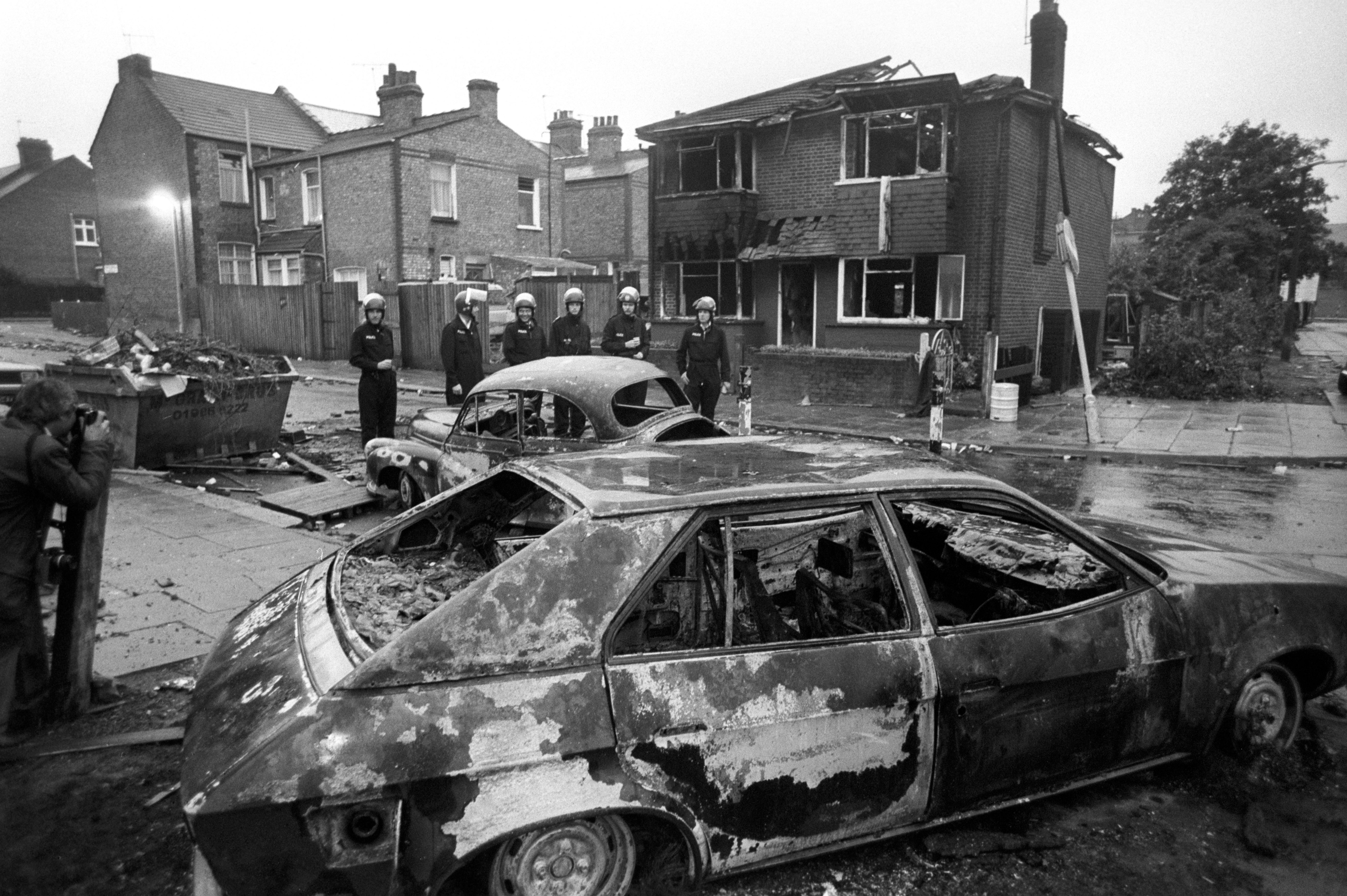Mick Gallagher: One of the most influential police officers in the country
Detective Chief Superintendent Mick Gallagher has a unique position and one that makes him one of the most important police officers in the UK dealing with specialist crime. He speaks to Steve Boggan about exactly what he does


If you ever make the mistake of asking Detective Chief Superintendent Mick Gallagher just what, exactly, his job entails, it might be a good idea to sit down, make yourself comfortable and cancel all your meetings for the day.
“Well,” he answers, “there’s economic crime, cybercrime, modern slavery, people trafficking, major and international inquiries, Flying Squad operations, kidnapping, online child sex abuse and exploitation, extradition, bribery and corruption…”
See what I mean?
“…sensitive inquiries, political and royalty, serious and complex fraud, international money laundering…”
Read More:
While he continues, I’ll explain that Gallagher, 57, is head of Central Specialist Crime for the Metropolitan Police, which means that at any one time he is overseeing hundreds of investigations and operations being conducted by almost 1,000 detectives.
“…revenge porn, online scams, historic sex abuse, murder cold-cases…”
His is a unique position and one that makes him one of the most influential police officers in the country. It was created four years ago following a gradual morphing of departments and roles to reflect the changing nature of organised crime, and under his stewardship, this multi-faceted department has thrived. In 2017, Her Majesty’s Inspectorate of Constabulary rated the Met’s serious and organised crime operations as “inadequate”. In the latest assessment, they were designated “outstanding”.
On any given day, Gallagher and his colleagues might be called upon to investigate multi-million-pound cyber frauds, close down people-trafficking operations, defuse dangerous kidnapping situations, identify paedophiles operating on the dark web or free people brought into the country to work for nothing – modern-day slaves.

This year alone, economic crime officers, part of Central Specialist Crime, were instrumental in record seizures of cash amounting to £40 million – a 200 per cent increase on the year before. They also achieved a 150 per cent increase in successful applications to have criminals’ accounts frozen – with £30 million still inside them.
Just last month in a series of raids across the capital by the Modern Slavery and Child Exploitation unit, six people were arrested on suspicion of trafficking women into the sex industry. Around a dozen people were rescued in the operation.
Over the past year, Gallagher’s Online Child Abuse and Exploitation team scoured 150 million files for indecent images, issued 250 warrants against suspected paedophiles, succeeded in obtaining 200 convictions and “safeguarded” around 300 children.
The next thing I knew, I was being attacked by quite a few men. One of them pulled my head back and slashed my throat from one side to the other
The Flying Squad successfully handles around 80 kidnappings a year – the vast majority gang-related – while last year alone, the cold cases unit cleared up to 35 unsolved firearms murders.
But isn’t this simply too much for one man to oversee? Doesn’t he ever feel overwhelmed?
“I’ve never felt overwhelmed,” he says. “That’s not out of complacency or arrogance. I feel so secure because of the brilliant people I have around me. I’m lucky to have them because on a daily basis they make me look good.
“There is lots of stuff that we do that is incredibly high-risk for the victims involved and very sensitive but we are trusted because we have a reputation for delivering good results. And because of the way organised crime operates these days – across lots of platforms – it is important that we have one controlling mind seeing across boundaries, making sense of how things are connected. For me, it is an absolute privilege to have a job as unique as this.”
Young Michael Gallagher followed in the footsteps of his father, Sean, who was a PC in Lewisham, after becoming the victim of an horrific knife attack at a nurses’ Christmas disco when he was just 21.

“A friend of mine got involved in an altercation and I stepped in to break things up,” he recalls. “The next thing I knew, I was being attacked by quite a few men. One of them pulled my head back and slashed my throat from one side to the other with a carpet knife. I ended up with 26 internal stitches and 46 external ones. The surgeon said it was only because the attacker pulled back my head that my carotid artery was tucked inside a little – if it hadn’t been, that would have been nicked and I’d have been dead in 30 seconds.”
Nobody was ever caught for the crime but it led to Gallagher, who had an undemanding job as a college technician while playing bass guitar in a band, to focus on his future.
“My dad sat me down and asked me what I was going to do with my life,” he smiles. “And with the arrogance of youth, I said: ‘I could do your job’. I still remember him laughing as he dropped me off at my training course at Hendon Police College.”
What followed reads like a history of modern policing. It was 1984 and so he was called to police picket lines in Grantham, work that alienated some of his friends. “There were a few who said they didn't want to know me because I had become a police officer. But, more importantly, many more said they were happier to have officers like me inside doing the job.”
What they meant was Gallagher’s progressive attitude towards collaborative policing within communities. He was on public order duty on the Broadwater Farm Estate, Tottenham, in 1985 when PC Keith Blakelock was murdered by rioters. He was part of a team given the task of tackling runaway drug-dealing, street crime and prostitution around Kings Cross railway station in London; and he went on to become part of efforts to tackle drugs and violence at the then hot-spot of Brixton, where drive-by shootings were commonplace at the time. Promotions were a regular feature of Gallagher’s career and eventually he was given his first full borough command in Brent, which had serious problems with gangs, violence and drugs at the time. (He also had public order policing responsibilities for Wembley Stadium).

In all of these areas, he adopted the method of involving local authorities, community charities and NGOs to help reduce criminal activities. And in all of them, crime fell.
“There is no point trying to police if you don’t have the support of the community,” he says. “And it works if you all pull together. I used to be genuinely amazed by the work put in by dedicated local people – I was being paid, but many of them were working for nothing. We used to say that it’s amazing what you can achieve when nobody is trying to take the credit. Everyone just put their heads down and achieved results.”
One of Gallagher’s last jobs before taking on his current role was as London’s “knife czar”, and, again, he adopted a similarly collaborative approach with councils, charities and NGOs across the capital. It seems to be working.
Read More:
The total number of knife crimes the capital in the year before the pandemic began had fallen from 13,979 to 10,185, a drop of 27 per cent.
Later this year, Gallagher will move on to a new role, as Chief Investigations Officer with the Serious Fraud Office (SFO).
“It’s a wonderful opportunity and a fresh challenge,” he says. “The SFO is an internationally-renowned organisation with a global reputation. I’m looking forward to it enormously.”
When the search starts for Gallagher’s replacement, one thing seems certain; the Met’s loss will be the SFO’s gain.
Join our commenting forum
Join thought-provoking conversations, follow other Independent readers and see their replies
1Comments